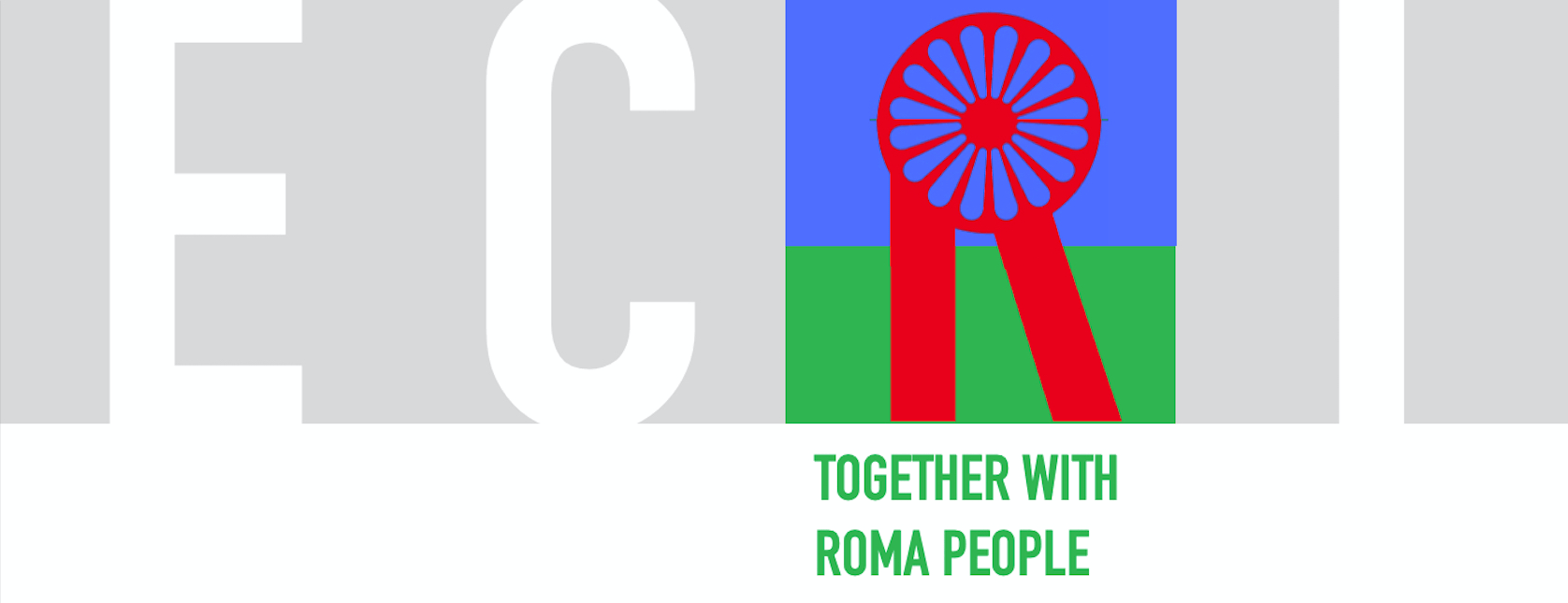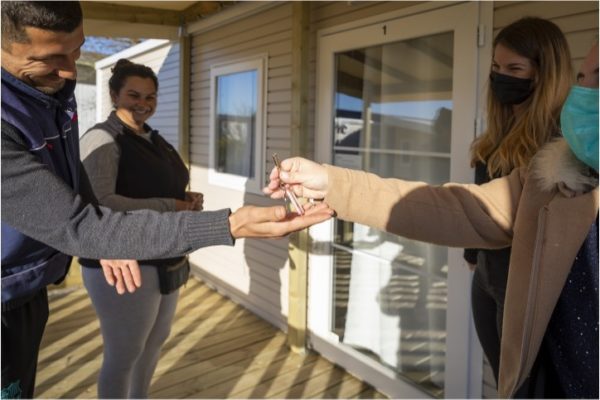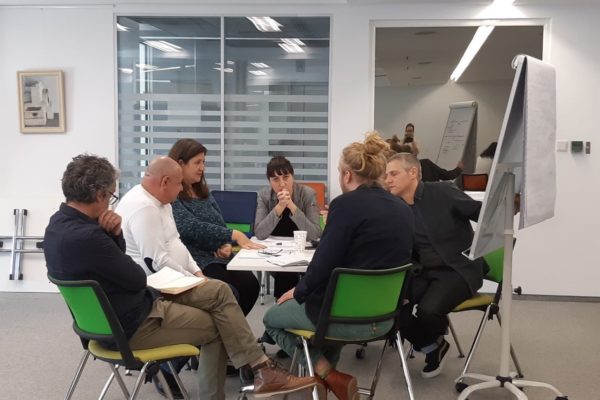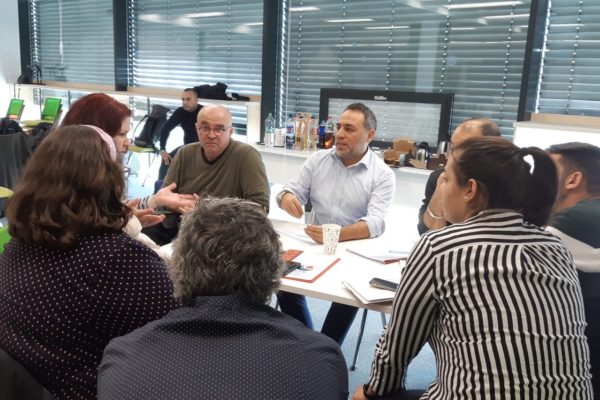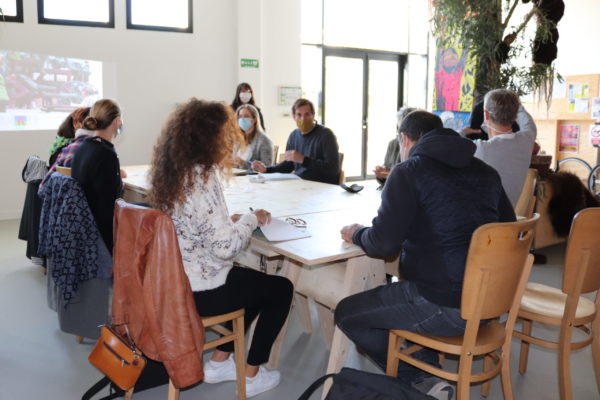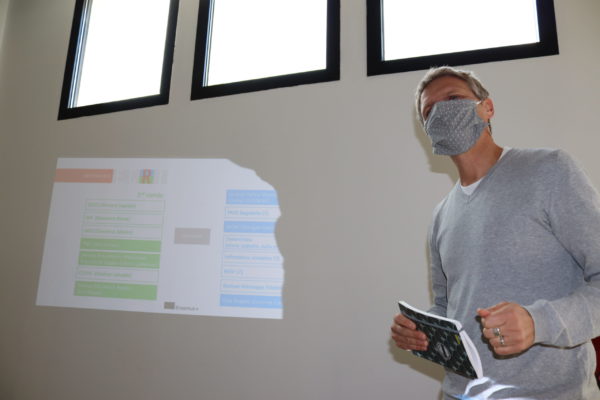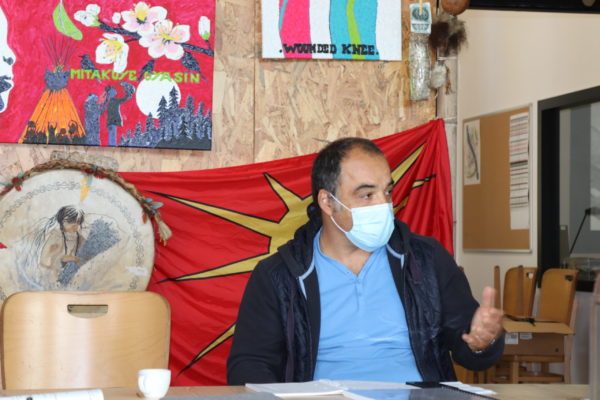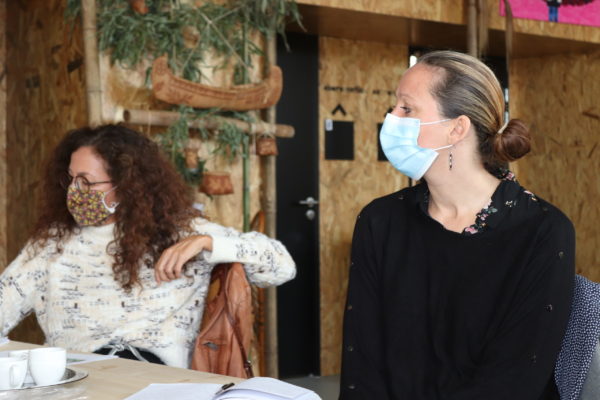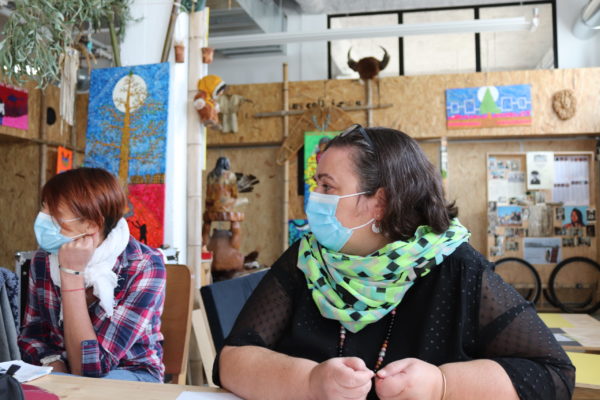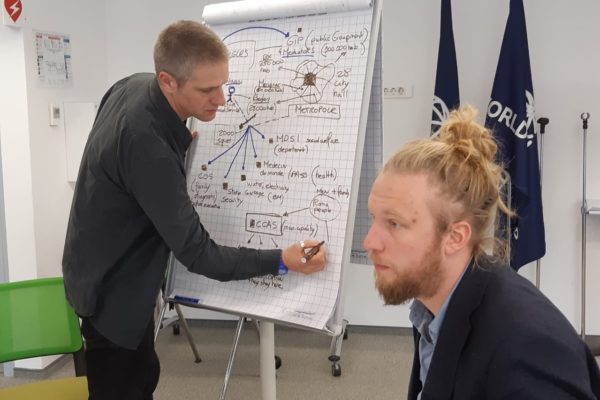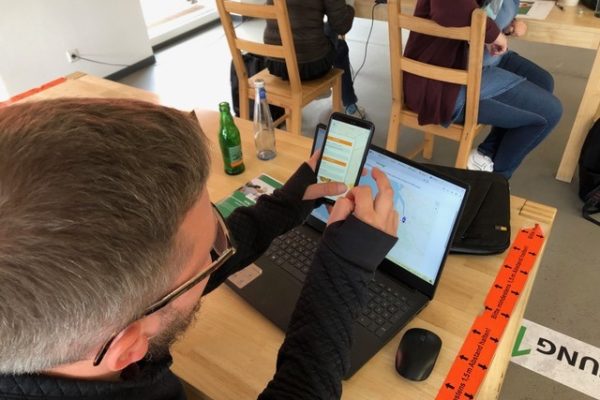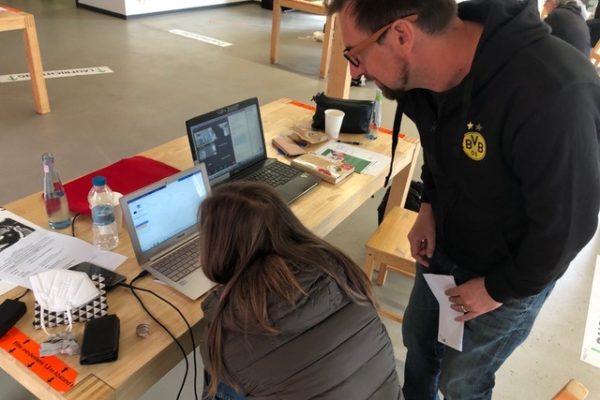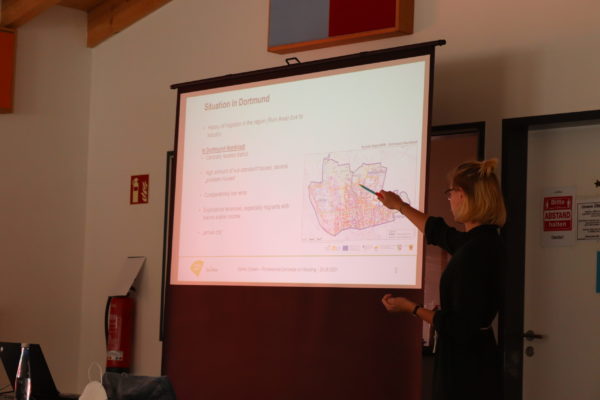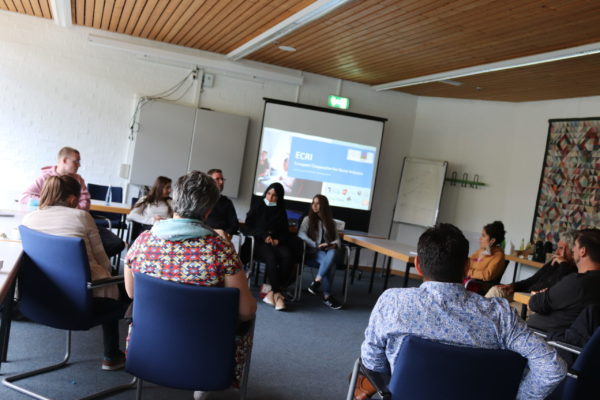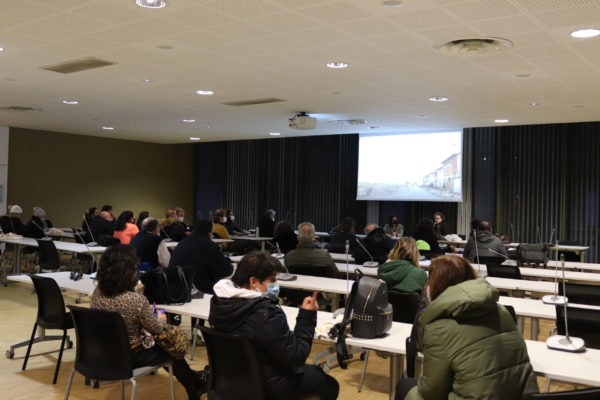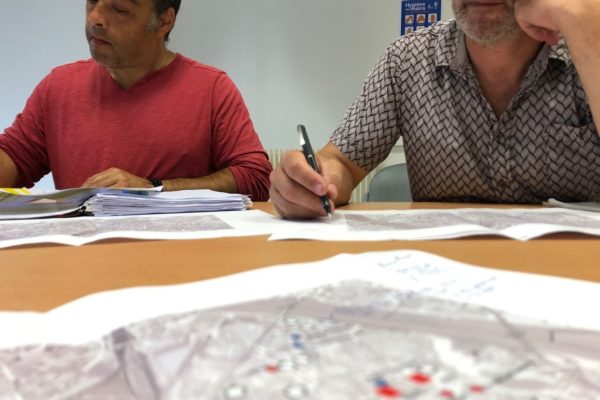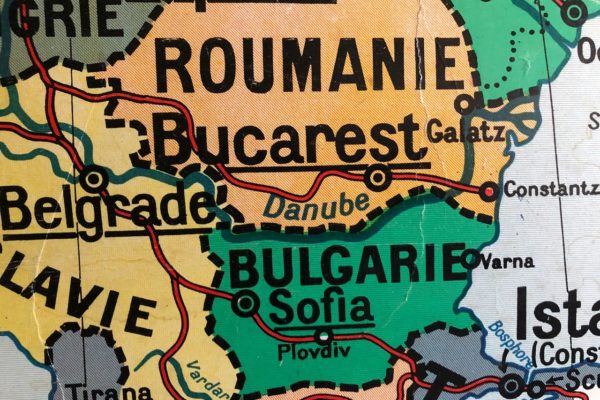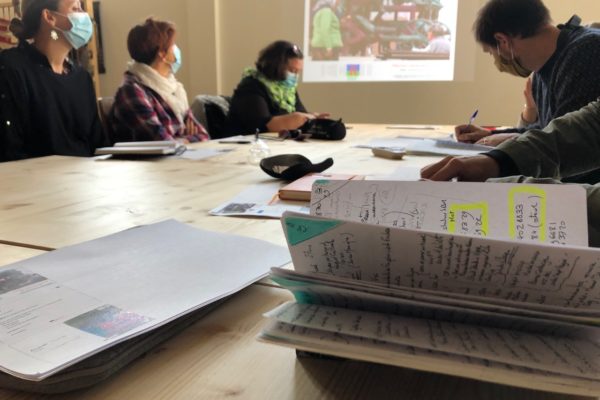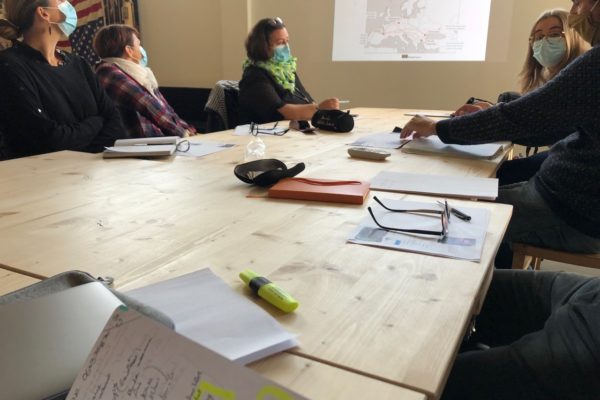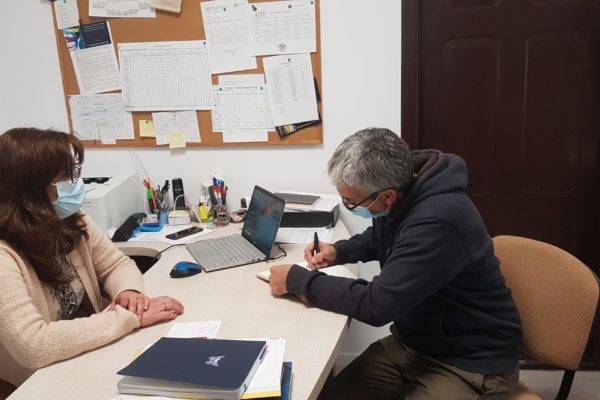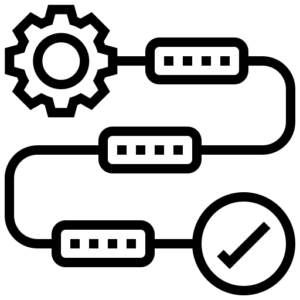Test territory – Bègles
INSTRUCTIONS FOR USE
How does this collaborative map work?
Meet the actors
This resource map, for use by professionals, is a prototype that allows
- To identify the actors and actions that promote access to rights for Roma families in their territory and in their field of intervention. In the fields of Health, Education, Employment, Housing, Culture and Public Aid.
- Strengthen the inter-knowledge between local actors and their different projects in order to develop a greater complementarity between the actions implemented by each of the partners at local level.
- Better guidance for Roma families, with a more solid network of actors, able to direct families according to their needs, towards this or that action, towards this or that structure. For example: If an actor receives a family for a health need, it will be easier to direct them to other actors able to support them in their search for housing.
- To innovate and capitalise, by identifying actors and professional practices in other territories, when this collaborative tool is appropriated by a growing number of actors on a European scale.
How does it work?
- This resource map was created by the partners of the European ECRI project, who wished to develop a prototype on the methodological level in the city of Bègles, France (Bordeaux Metropolis). In order to test the functionalities of the tool in an area where the local partnership has been widely mobilised to promote the reception of Roma families, particularly in the context of the creation of the first Temporary Integration Establishments (ETI). This innovative approach is part of a new paradigm of public action: housing first. “To bet on Housing First is to give priority to housing as a first condition for integration. People living in shanty towns or squats (like most Roma families in the country) will be able to benefit from adapted, flexible and multidisciplinary support”. With 10 housing units for 10 Roma families, who previously lived in the squat next door, the city of Bègles and Bordeaux Métropole are opening up a new way of conceiving social integration for Roma people.
Read more about the project
- Tomorrow, on a European scale. This map has been designed to develop and integrate new actors, on a European scale, who wish to use this tool to improve their local strategy. Process underway in Plovdiv, Pazardjik, Dortmund and Bucharest.
I want to participate and identify myself on this map
- Contact the LABA (contact@lelaba.eu)
If I am an actor (public institution, association, NGO) that accompanies Roma families in the field of access to rights
- LABA is contacting the ECRI partnership if you are a Bulgarian, Romanian, German or French actor, to apply
- The LABA will contact you to validate your registration
- You will receive a personalised password to enter your information on the card and become part of the network.
TRANSFERABILITY CONDITIONS
- Choose a TEST territory
The PLACE cooperative in charge of developing this tool relied on a group of public and private actors who work on a daily basis to better welcome Roma families in the city of Bègles, France (Bordeaux Metropolis). These actors are federated by the city’s CCAS within the framework of a working group, which meets every month to discuss the families’ situations and implement solutions. The aim is to gradually create the conditions for families to access their rights in various areas (social, health, education, housing, employment).
- Meet the ACTORS
In order to develop this inter-active map, the PLACE cooperative met individually and collectively with the local actors of the Béglais Working Group (13 interviews + 2 collective sessions) to better understand their needs, their collaborative practices and their expectations. From February to November 2020
- CCAS of Bègles (03.02 and 25.06/2020)
- Bègles Educational Success Programme (22.10/2020)
- Mission Squatt Bordeaux Métropole (29.09/2020)
- GIP Bordeaux Métropole Médiation (25.06/2020)
- CLSPD Metropole (21.02/2020)
- Maison Départementale de la Solidarité Bègles (11.09/2020)
- Protection Maternelle Infantile de Bègles (11.09/2020)
- Association Médecins du Monde (17.09/2020)
- Association Remu Méninges (13.10 / 2020)
- Pole Emploi Bègles (18.09 /2020)
- Bègles Town Hall (17.09/2020)
- Pole Prevention Security Bègles (03.09/2020)
- Centre Social et Culturel Estey Bègles (06.10/2020)
- Making a PROTOTYPE
With a developer specialised in GIS, to design a platform that allows the actors involved in the reception of Roma families to be referenced and to modify their details in real time. The challenge is to strengthen their inter-knowledge so that they can work together better and improve the quality of the reception of families.
Once the prototype had been produced, based on the items required by the local partnership for each form and the setting up of a public and private version to guarantee the confidentiality of certain information, user tests were carried out with the Group.
- Expanding to the European level
Also, working times at European level with ECRI partners have been set up during training sessions and meetings, initiated by the project (DORTMUND from 25 to 28.08/2021 and PLOVDIV from 17 to 20.11/2021). These working sessions have considerably enriched the project, by referencing first resources and exchanging on possible evolutions: in particular a free application on Smart phone for families. Project to be developed in a future European programme (ECRI 2?)
PLACE is a consultancy cooperative that assists local governments in implementing their strategy for the reception and support of fragile and vulnerable populations. Thus, for many years, PLACE has been carrying out diagnoses, consultation and collective reflection sessions to write recommendations in this field. By using the Webmapping tool to facilitate collective work. Let’s mention here, 3 types of missions, which concern the reception of foreign families, Roma, Gypsies and Gipsies:
- Establishment of an Observatory of Homelessness in the Bordeaux Metropolis within the framework of a national policy of “Housing First” and the “reduction of substandard housing” from which the Roma population suffers (2019-2021)
- Elaboration of a plan for the reception and housing of Travellers in the departments of Tarn and Haute Garonne, for the Prefecture and the agglomerations concerned (2020-2022)
- Support for the CCAS of Bègles to strengthen the reception of the most vulnerable families, particularly Bulgarian and Romanian Roma families present in the area
